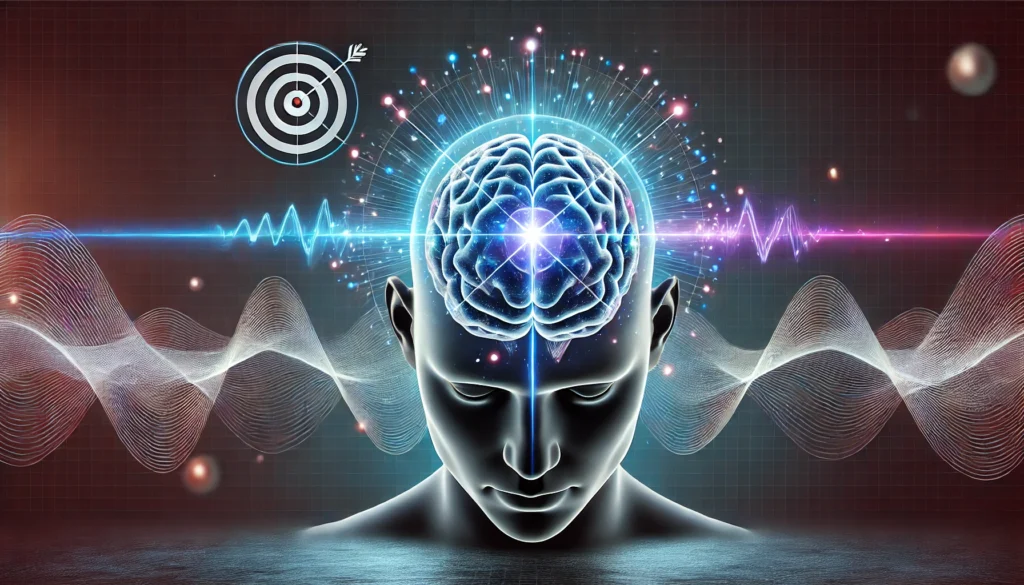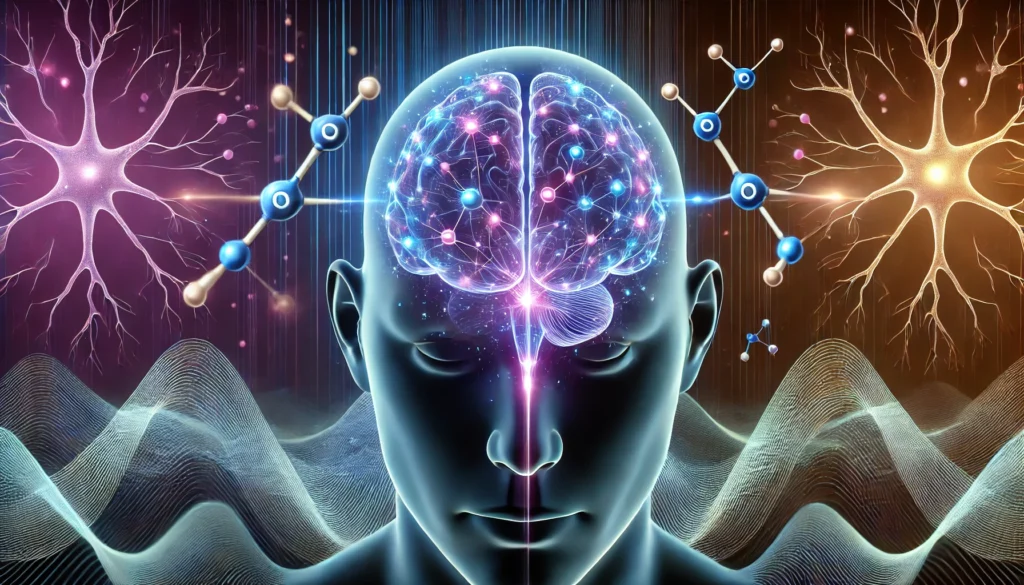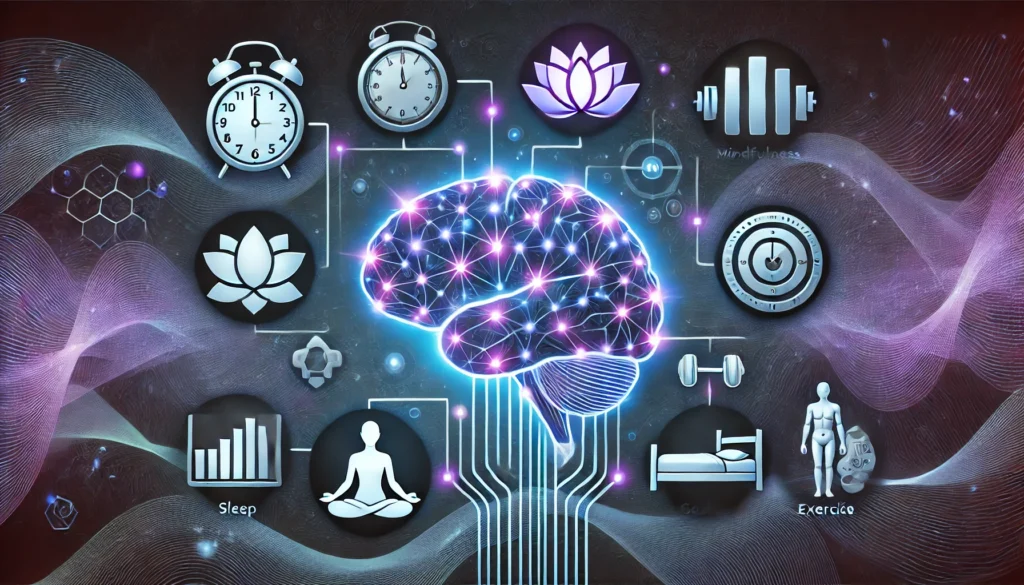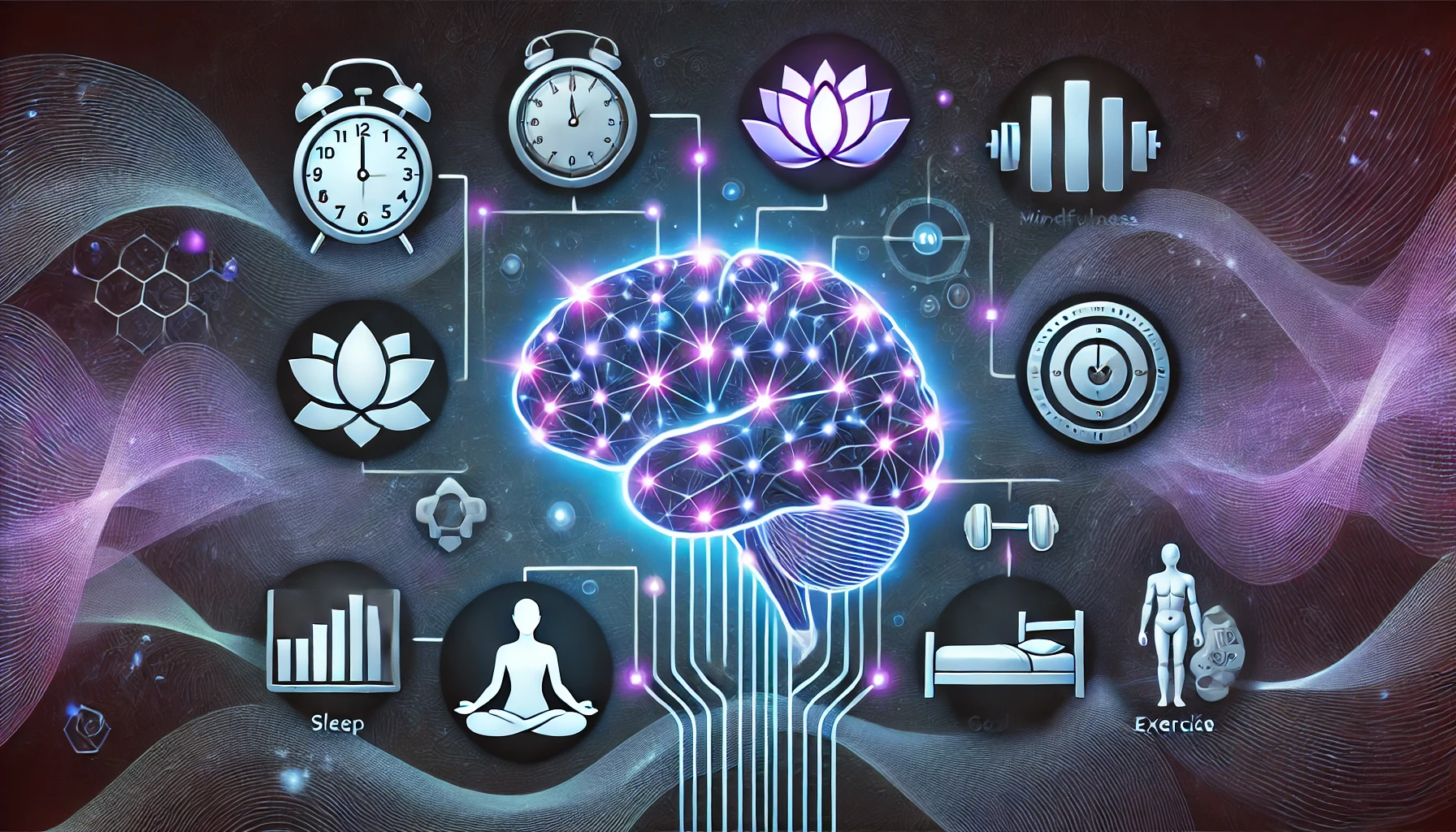Introduction

Focus is the brain’s ability to direct attention toward a specific task while ignoring distractions. It relies on neural networks that regulate concentration and alertness. The prefrontal cortex and dopamine play key roles in sustaining attention. Strengthening focus requires practice, mindfulness, and a distraction-free environment.
How the Brain Controls Focus

1. The Prefrontal Cortex (PFC): The Command Center
- Decision-making
- Problem-solving
- Impulse control
- Sustaining attention
2. The Anterior Cingulate Cortex (ACC)
- Detecting and resolving conflicts between different stimuli
- Error detection and correction
- Strengthening sustained attention
3. The Basal Ganglia: The Habit Reinforcer
- Supporting motivation and persistence
- Enhancing task automation (turning repeated behaviors into habits)
- Regulating dopamine, which influences concentration
4. The Thalamus: The Information Filter
- Selective attention (ignoring distractions)
- Processing important stimuli efficiently
- Enhancing task-related focus
The Role of Neurotransmitters

1. Dopamine: The Motivation Molecule
- Enhancing motivation and goal-directed behavior
- Reinforcing positive habits
- Strengthening learning and memory
2. Norepinephrine: The Alertness Booster
- Increasing alertness and responsiveness
- Enhancing memory retention
- Strengthening sustained attention
3. Acetylcholine: The Learning Enhancer
- Strengthening cognitive flexibility
- Improving sustained attention
- Enhancing memory recall
4. GABA: The Calming Agent for Focus
- Reducing distractions and intrusive thoughts
- Promoting a state of calm
- Enhancing deep concentration
The Science of Distraction: Why We Lose Focus

1. The Default Mode Network (DMN): The Mind-Wandering System
- Daydreaming
- Overthinking
- Mental drifting
2. Attention Residue: The Cost of Multitasking
- Your brain remains partially on the previous task
- It takes longer to regain full concentration
- Cognitive efficiency drops
How to Improve Concentration Using Neuroscience

1. Practice Deep Work
- Set aside uninterrupted blocks of time for focused work
- Eliminate distractions like social media and email notifications
- Train your brain to engage in intense concentration
2. Increase Dopamine Naturally
- Set achievable goals to trigger the brain’s reward system
- Engage in rewarding activities like solving puzzles or learning new skills
- Exercise regularly to boost dopamine production
3. Optimize Your Environment
- Work in a quiet, clutter-free space
- Use noise-canceling headphones or ambient sounds
- Adjust lighting and temperature for optimal alertness
4. Use Mindfulness and Meditation
- Mindfulness strengthens the prefrontal cortex
- Meditation improves sustained attention and cognitive control
- Even 10 minutes of meditation a day
5. Follow the 90-Minute Work Cycle
- The brain functions best in 90-minute cycles
- Work for 90 minutes, then take a 15-minute break
- This approach aligns with the ultradian rhythm of cognitive performance
6. Sleep Well for Cognitive Restoration
- Lack of sleep disrupts prefrontal cortex function
- Aim for 7-9 hours of quality sleep
- Short power naps (20 minutes) can restore alertness

